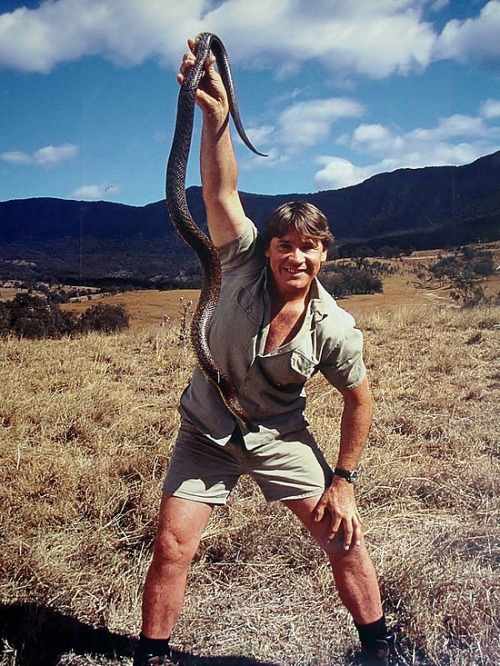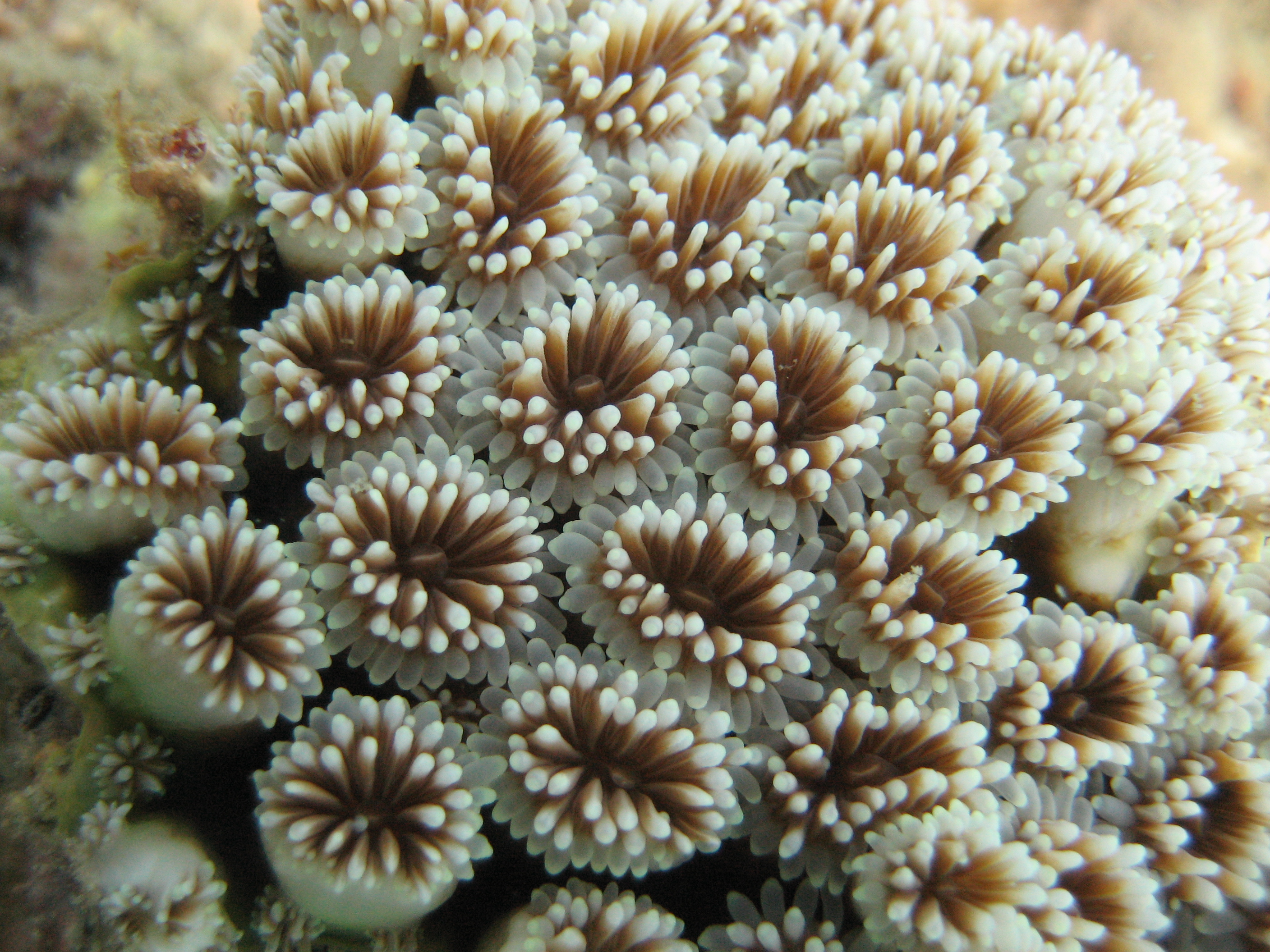Hey all! Thanks to everyone who looked at my recent blogs, it really means a lot to me, and I'm going to continue to reach out to more readers. This entry includes a few links to recent news stories, so here ya go:
Paris Climate Convention
The United Nations Conference on Climate Change (or COP21) is a unique opportunity for leaders around the world to meet in Paris and make monumental decisions on issues such as fossil fuel usage, carbon emissions, and financing the movement to end (or at least slow) global warming. The best explanation of the issues and their proposed solutions I've found in this article. "Long live the planet"!
GrubHub Bans Shark Fins
The United States' leading online and mobile food ordering company has banned the sale of shark products on their site! They said, "this is the right choice to protect the world's endangered species,", and it's thanks to the group Oceana. Great job!!
Lego League for Less Plastic Bags
For the year of 2015, my resolution was to use fewer plastic bags. I'll have more commentary on that in another blog, but the good thing is, I wasn't alone. Many individuals, and larger groups, have been moving to reusable bags. The titular link will bring you to an online petition by a club of schoolchildren vying to ban the use of plastic bags state-wide in Florida. According to Planet Ark, "Tens of thousands of whales, birds, seals and turtles are killed every year from plastic bag litter", so reducing the presence of plastic bags is an easy way to save lives. And, you know, we can put out an army of filtering trash cans in the ocean....
Ban on Microbeads
On the subject of plastic, the Microbead Free Waters Act will prohibit the use of microbeads in beauty products in July 2017. Soaps and scrubs have these tiny pieces of plastic, usually for exfoliation, and they contaminate all sorts of water sources. What's more, they are consumed by animals and they can end up in the food chain. It's refreshing to see the government taking action against this environmental concern.
Ivory meeting
Prince William organized a meeting to discuss the transportation of banned wildlife products. In this meeting, China has sent a delegate, and why is this news? China is a key player in combating wildlife crime, and there is a great deal of progress we've seen already. For example, the value of raw ivory in China has halved in less than two years. Hopefully, this trend will continue.
Thanks for reading everyone!
Thursday, December 17, 2015
Monday, December 14, 2015
Dose of Disney: Canines at Kilimanjaro
Hey folks! I know I haven't done a Disney blog in a while, but I can't help but mention this news: there are now hyenas and African wild dogs at Kilimanjaro Safari in Disney's Animal Kingdom! The Safari is a must-see attraction, featuring a variety of African animals, including my favorite, okapis! VIP-style tour guides take you along bumpy roads, through grasslands and jungle-type environments, giving you an up-close and magical experience that only Disney can offer.
So just this morning I read this article from AllEars.net, a great source of information for Disney fans. It says that the Safari has introduced hyenas and African wild dogs, which is great news! Hyenas have a reputation as being the bad guys, obviously from Disney's Lion King, but in reality are fantastic predators. Their jaws are so strong they can eat teeth, hooves, and bone! They are the most common carnivore in Africa, and just like in the movie, can make a vocalization that sounds like laughter. (More facts about hyenas can be found here.)
African wild dogs, also called painted dogs, are certainly not as well-known as other African carnivores. Unfortunately, they are also endangered. According to IUCN Red List: "the causes of African Wild Dogs’ decline are reasonably well understood and include extreme sensitivity to habitat fragmentation as a consequence of wide-ranging behaviour, conflict with livestock and game farmers, accidental killing by people in snares and road accidents, and infectious disease. All of these causes are associated with human encroachment on African Wild Dog habitat and, as such, have not ceased and are unlikely to be reversible across the majority of the species’ historical range." Hopefully, having them at Kilimanjaro Safari will give the African wild dogs some much-needed attention and promote their conservation.
Thanks for reading everyone! For more information on Disney and conservation, check out the Disney Conservation Fund and their work. More blogs to come soon, so stay tuned!
 |
| My front-row view on the Safari the last time I went (which was way too long ago!). |
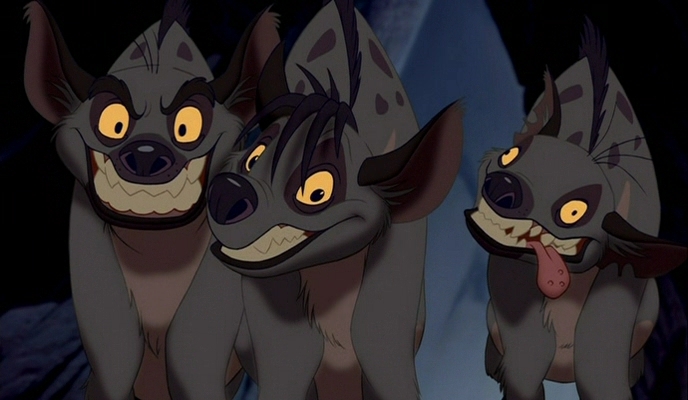 |
| "We;d love for you to stick around for dinner.." "Yeah, we could have whatever's lion around!" "Oh wait wait, I got one, make mine a cub sandwich!" |
Thanks for reading everyone! For more information on Disney and conservation, check out the Disney Conservation Fund and their work. More blogs to come soon, so stay tuned!
Sunday, December 6, 2015
Movie Review: "Racing Extinction"
Hey folks! Tonight I watched "Racing Extinction", an hour and a half television special. After seeing the previews, I was very excited to watch the show, and I have to say, it exceeded my expectations.
Within the first minute, my heart was racing. Images of elephant feet, jaguar heads- we're talking serious stuff here. Right off the bat, we're forced to face the facts:
"1 in a million species should expire each year, and right now, the rate of extinction is 1000 times faster than it should be. "
"It's like we're living in the age of dinosaurs, but we can do something about it."
"Humanity has become the asteroid"

One of the other issues was about shark finning. Shark finning kills 250 thousand sharks every day, and we saw a heartbreaking film of a nurse shark with her fins cut off trying to swim, hanging on to her last moments of life. I almost broke my t.v. screen when, later on, a Chinese man said that video was made up by the "greenies". The good thing is that shark finning awareness has been improving, especially thanks to Mr. Yao Ming, whose WildAid commercial you can see here.
The movie also talked a lot about climate change. There is a massive increase in CO2 going on right now, and the scary part?- that's a common factor in every single mass extinction in the history of the Earth. And we humans are not safe from that in any way. Right now, we are creating an acidic ocean- creatures simply dissolve in acid, and the movie proves that by putting shells in vinegar. Think about it. It's scary. This damage is caused by everyday activities- we're making our lives a lot better for us, but at the expense of everything else. A very interesting point was made: livestock is a huge problem. The methane released by livestock is arguable the biggest cause in this spike in CO2. So, the more dependent we are on meat, milk, and eggs, the greater the CO2. If everyone simply didn't eat meat for one day every week, it would be the equivalent of taking 7.6 million cars off the road. There's your New Years resolution, folks.
On somewhat of a sidenote, it's also a very quotable movie. Try these on for size:
"If we all lose hope, there is no hope...there's still a lot left that's worth fighting for."
"We need more people to understand it's worth doing, the small choices we make each day can lead to the kind of world we want for the future."
"We always think there's going to be somebody else to save these animals..." but "we're the only generation left to save these animals."
"Better light one candle than curse the darkness."
Ok, so here's the last paragraph of this blog, but don't think for a moment I'm done talking about this movie. All my coworkers will tell you, I still have a lot to say. I plan on writing more entries on some of the topics from the movie I didn't cover here, like the politics of conservation, and technology's role in public education. But long story short, this movie was phenomenal. The message: we have to keep fighting. Visit Startwith1thing.com and commit to changing just one thing in your daily life to make a difference. Please, please, please watch this movie. It is so incredibly important to be aware of all these issues and battle them together.
"Change starts in the heart."
Thanks for reading everybody! Stay tuned for more blogs soon, and visit A Voice For the Voiceless for a more in-depth look at the whale, shark, and manta issues in this movie.
Thursday, October 15, 2015
News Review: Good News Out of Africa (and other continents)
 |
| Naaaaaah-so-when-yaaaaaa-gonna-buy-me-pizza-bro? |
Rats Trained to Detect Landmines
In Mozambique, rats are trained to pick up the scent of TNT in the ground and alert crews of the location of landmines. It's similar to how dogs will sniff packages in an airport, and the rats' small size allows it to walk over dangerous ground unharmed. I won't go on a rant about animal stereotyping, but people often see rats as pests that should be destroyed. Well, here's an example of how smart and helpful they can be!
 |
| Often called the deadliest snake, you don't want to mess with a black mamba. |
The Black Mambas are a mostly-female anti-poaching unit in South Africa's Kruger National Park. They have protected many animals, but most significantly, have prevented any rhinoceros from being killed, while neighboring reserves lost over 20. They can also boast the reduction of snaring by 76%. It's no wonder they won this prestigious United Nations award!
 |
| O. M. G. is that Yao Ming? Hey, hey Bruce, I saw Yao Ming!! |
Yao Ming Saves Sharks
The former NBA player is big- not just on height, on conservation too! He has teamed up with WildAid to help bring awareness to the plight of sharks because of shark fin soup. As such a huge celebrity, his influence has garnered a lot of support for the ban on shark fin soup in China. And, what's more, he's looking to help other forms of wildlife too! Yay Yao!
Disney's Food and Wine Festival is Promoting Sustainability
The annual autumn event at DisneyWorld in Florida is focusing on food that is healthy for the planet! With celebrity chefs, Disney encourages guests to look at the bigger picture. I know this isn't about wildlife, but a) wildlife depends on a healthy Earth, often damaged by human agriculture, and b) I
Thanks for reading everyone!
Monday, September 21, 2015
Off-Topic: Greyhounds
Hello all! As the title has warned you, this post is not about wildlife conservation. Today, I want to shed some light on another issue.
I don't talk too much about myself on my blog here, but I will tell you that I share my home, and my heart, with a rescued greyhound who was retired from a racing track. Since we got her, my family has become more aware of the cruelty these animals face.
Right now, there is an international movement to close down the Canidrome, a racetrack off of mainland China, where there is no rescue program. No dog gets out alive. Even while racing, these poor greyhounds suffer malnutrition, illness, and open wounds without any sort of treatment or proper care. Please take a moment and go to www.grey2kusa.org to sign their petition.
Thanks guys! I'll be back with more wildlife blogs shortly!
I don't talk too much about myself on my blog here, but I will tell you that I share my home, and my heart, with a rescued greyhound who was retired from a racing track. Since we got her, my family has become more aware of the cruelty these animals face.
Right now, there is an international movement to close down the Canidrome, a racetrack off of mainland China, where there is no rescue program. No dog gets out alive. Even while racing, these poor greyhounds suffer malnutrition, illness, and open wounds without any sort of treatment or proper care. Please take a moment and go to www.grey2kusa.org to sign their petition.
Thanks guys! I'll be back with more wildlife blogs shortly!
Monday, September 14, 2015
Species Suffering (Warning: Graphic Photographs)
Hello everyone, and thank you for stopping by. Today, I'd like to look at a few images that represent several tragic events that are happening to global wildlife right now. All too often, it is easy to discount an issue, or underestimate it. The following pictures show the devastating effects that humans have on their neighbors. "A picture is worth a thousand words", so I will not describe or interpret, I will simply include the link if you'd like to learn more. Keep in mind, these things may not be happening right where you are, but they are happening right now.
.jpg) |
| The White Rhino Almost Wiped Out |
 |
| Melting Sea Ice Spells Doom for Polar Bears |
 |
| Palm Oil Fuels Primate Genocide |
 |
| The Perils of Plastic Pollution |
 |
| The Slow Loris Species Suffering Because of Illegal Pet Trade |
 |
| Shark Finning is an Unnecessary Slaughter |
What are these pictures saying to the world? "Open your eyes." Will you?
Saturday, August 29, 2015
News Review: Burt the Bee Man Dies, Galapagos Tortoises Hatchlings, and More
Hello everyone! This is just a quick post pointing out some interesting news stories in the world of conservation:
Burt of Burt's Bees Dies
On July 5th, Burt Shavistz, the names and face of Burt's Bees skin products, passed away at the age of 80. His recognizable lip balms, hand salves, and baby washes have helped to bring consumer's attention to the conservation of an extremely important animal, the honey bee. Rest in Peace, Burt.
Baby Galapagos Tortoises Found for the 1st Time in 100 Years
After 18th century sailors introduced rats to the Galapagos island of Pinzon, the island's tortoises perished from the egg-eating intruders. When a conservation program aimed against rats proved successful in 2012, the island was declared rat-free. And now, tortoise babies!!
Costa Rica Bans Sport Hunting
Costa Rica has become the first Latin American country to ban hunting for sport. This will help protect their native wildlife, including wild cats like ocelots, pumas, and jaguars!
Volcano Shark?
No, not Sharknado, try Shark-cano! Two shark species, and one stingray species were found in an underwater volcano. What does this have to do with conservation? Well, if you don't love animals, you don't conserve them- what better reason (among many others) to love sharks and rays- they can live in an active volcano!
The Great Barrier Reef Retains Its World Heritage Listing
The UNESCO World Heritage status means that the Great Barrier Reef will continue to be protected, and conservation efforts will be progressing. All around the world, many of these locations have recovered from previous damage/decay. Hopefully this valuable area of biodiversity will flourish for many years to come!
Burt of Burt's Bees Dies
On July 5th, Burt Shavistz, the names and face of Burt's Bees skin products, passed away at the age of 80. His recognizable lip balms, hand salves, and baby washes have helped to bring consumer's attention to the conservation of an extremely important animal, the honey bee. Rest in Peace, Burt.
Baby Galapagos Tortoises Found for the 1st Time in 100 Years
After 18th century sailors introduced rats to the Galapagos island of Pinzon, the island's tortoises perished from the egg-eating intruders. When a conservation program aimed against rats proved successful in 2012, the island was declared rat-free. And now, tortoise babies!!
Costa Rica Bans Sport Hunting
Costa Rica has become the first Latin American country to ban hunting for sport. This will help protect their native wildlife, including wild cats like ocelots, pumas, and jaguars!
Volcano Shark?
No, not Sharknado, try Shark-cano! Two shark species, and one stingray species were found in an underwater volcano. What does this have to do with conservation? Well, if you don't love animals, you don't conserve them- what better reason (among many others) to love sharks and rays- they can live in an active volcano!
The UNESCO World Heritage status means that the Great Barrier Reef will continue to be protected, and conservation efforts will be progressing. All around the world, many of these locations have recovered from previous damage/decay. Hopefully this valuable area of biodiversity will flourish for many years to come!
Monday, July 6, 2015
Movie Review: What We Can Learn from Jurassic World
So the other night I went and saw Jurassic World in IMAX 3D. My heart was racing the entire time, my palms were sweating, and no matter if they died or not, I am still super jealous of the kids at the triceratops petting zoo. Long story short: it was amazing. So for the rest of this blog post, I'd like to explore out a few concepts the movie hit on:
Intelligence
 |
| Impressive considering I don't know any humans who can bake underwater! |
Jurassic World makes the point that animals can be smart, and we often times underestimate their abilities. Like the raptors. Definitely the stars of the movie (Blue is my favorite!!). They have demonstrated their ability to work together in a team, communicate, and problem-solve. Who would've thought that dinosaurs could be smart? The reality is that we're learning more and more every day about the mental capacity of animals. Keeping that in mind, we shouldn't be surprised to find that many species are more intelligent than we previously thought. I mean, in fifty years, we could discover that seahorses are super smart- who knows!
 |
| Any Nostalgia Critic fans out there? |
No matter how much you train an individual animal, if they are wild, they will do what they want. Wild animals are, and will act like, wild animals. Just take a look at TIME's top 10 incidents. In my opinion, wild animals need to be treated with respect, understanding, and if you see one, distance. In no way am I saying animals are out to get us, but they can be dangerous if we aren't careful. (Of course, there are also many cases of domesticated animals going batpoop crazy, but we won't get into that.)
 |
| I missed this scene because I was in the ladies room. True story. |
I can sit here at my desk and type out a novel of why we should be using technology for helping with poverty, or preventing suicide, or fighting terrorism. Or I could rant about how we should be using technology to innovate more ways to conserve our planet's natural resources, and help save the many endangered species of animals before they are lost to us forever. But instead, we're focused on using technology for something cool, but useless: bringing back dinosaurs. In this case, I'll just leave the rest of the talking to Ian Malcolm:
 |
| Yeah, go tell this to the people trying to make dino-chickens (see link at end) |
One of the concepts that really hit home with me was the emphasis on corporate sponsorship. It seems nowadays, advertisements are everywhere- billboards, tv commercials, and even roller coaster cars! Granted, some advertisements are really cool! Take the Science World ads, for example. Go ahead and Google it. Their facts are stunning, educational, and fun! I even picked a dinosaur one for you guys:
 |
| The real question is who would sit on those chairs? |
 |
| Feed me Seymour! |
Zookeepers Recreating the Raptor-Training Scene
Nostalgia Critic's Review (NSFW)
Dino Chickens?
Friday, June 19, 2015
News Review: Ivory Crushing, Glamour Gushing, and Extinction Fussing
Hello everyone! Remember me? I know it's been a while since my last post, and I do apologize- my life has been pretty hectic lately! I intend to get back in the swing of posting more regularly, so keep checking back for more! Today, I'd like to show you a few news articles that have caught my eye. (The links to the articles are underneath my little blurbs.)
Sixth Extinction
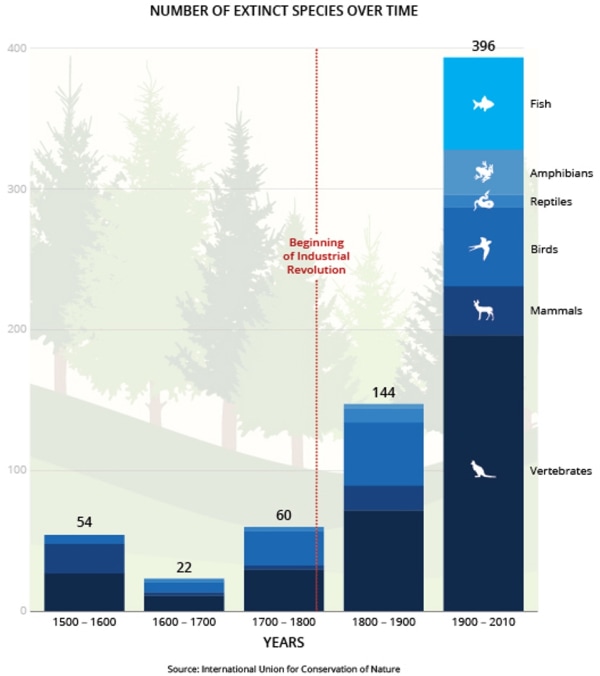 It's not new news. We've known that lately, humans, whether directly or indirectly, have been destroying the biodiversity of our planet by pushing many species to extinction. Some may argue that extinction is a natural process, and while that is true, the problem here is the rate at which extinction is occurring- that is, much much faster than natural. Amidst all the Caitlyn Jenner hype and other soap-opera-style stories that somehow make headlines, I am happy to see real problems like this are getting more attention. Of course, it has to be titled "...It could kill us" in order for anyone to pay any mind, but if that's what it takes so be it. As much as you can argue it, humans are animals and we are part of this planet's ecosystem. If we continue to destroy everything else, we will destroy ourselves. Sixth Extinction on NBC News
It's not new news. We've known that lately, humans, whether directly or indirectly, have been destroying the biodiversity of our planet by pushing many species to extinction. Some may argue that extinction is a natural process, and while that is true, the problem here is the rate at which extinction is occurring- that is, much much faster than natural. Amidst all the Caitlyn Jenner hype and other soap-opera-style stories that somehow make headlines, I am happy to see real problems like this are getting more attention. Of course, it has to be titled "...It could kill us" in order for anyone to pay any mind, but if that's what it takes so be it. As much as you can argue it, humans are animals and we are part of this planet's ecosystem. If we continue to destroy everything else, we will destroy ourselves. Sixth Extinction on NBC NewsThis isn't really news, but here are two of the women featured in Glamour magazine (which is probably the girly-est thing you'll ever see in this blog). Not a very long read, but it's nice to know people are out there trying to make a difference!
Elizabeth Brajevich Vanessa Alejandro
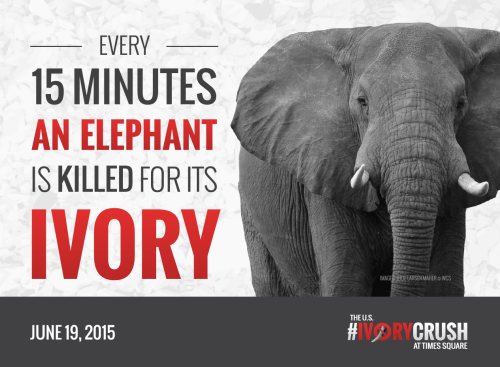
Crushing the Ivory Trade
In several previous posts I have talked about the illegal ivory trade. Today, the United States made a very powerful statement about its views on it: in Times Square, New York City, one ton of confiscated ivory, in the form of trinkets and carved tusks, was pulverized. In my opinion, it is fantastic publicity for a global problem, and I hope it is a sign that the US will be more committed to stomping out this horrendous problem.
WWF on the Ivory Crush
The illegal ivory trade may seem like a very foreign problem for many of us, but keep in mind that wildlife crime, in any form, affects humans somewhere along the line. Don't dismiss it just because you think elephants safe in zoos are enough. Think about the ecosystem they live in, that will be thrown into chaos in their absence, the humans whose livelihoods depend on that particular ecosystem, and so on and so forth. Just like I said about the first news article on this post, we are not immune to the destruction we are inflicting. And the sooner people realize it, the better.
Thank you for reading!
Thursday, April 23, 2015
Creature Feature: Rhinoceros
Good evening everyone! I have decided to write a blog on rhinoceros in a different fashion: with drawings!! Why? Well, unfortunately, there are millions of graphic pictures you can find on the internet involving rhino poaching, some of which I have used in earlier blog posts. Tonight, I want to give the subject a more read-able face. As a warning: I am a horrible artist, and as you scroll down you will be exposed to the horror of my attempted drawings, but I figured it would be less painful than images of slaughtered animals and their orphaned young. So here we go, let's talk a bit about rhinos:
If you want to learn more or donate, I've included quite a few links below. And as I've said before, you can help simply by saving energy. Whether its recycling, saving water, or consuming less, saving energy saves resources and habitat, which helps animals out in the wild. (For example, all of my drawings on this post were done on the back of used paper!)
I hope you enjoyed reading, and thank you so much for checking out my blog!!
Monday, April 20, 2015
News Review: Ricky Gervais Against Trophy Hunting
Hello all! Quick post for today- just wanted to showcase what I think is the best use of fame. Actor/writer/producer Ricky Gervais has spoken out against trophy hunters, showing his support of wildlife conservation.
If you don't know already, trophy hunting is the hunting of wild animals primarily for sport and to claim a part of the slain animal as a memorial (aka a "trophy", such as horns, antlers, head). There has always been controversy surrounding trophy hunting, and its morality, especially when the animal's carcass is wasted and not eaten and you can read more about it here. In my personal opinion, I don't have a problem with trophy hunting as long as it's:
a) done in a lawful manner, following the area's bag limits, seasons, ect.
b) done as humanely as possible
c) done sustain-ably by only hunting animals whose populations are stable
In my part of the US, the spotlight species to trophy hunt is the whitetail deer. They are overpopulated, and hunting them could be considered essential to the balance of the ecosystem, since it seems they are only preyed upon by automobiles. But out in Africa, trophy hunting takes on a much more harmful role. Big African animals are aesthetically prized, and for many hunters, these majestic animals only have a place in the world if dead on their wall. Now, if all African game was as overpopulated as the white-tail deer, I would personally have no problem with trophy hunting these animals. However, many African species are Threatened, Endangered, or even Critically Endangered. The species most sought after for the challenge they present are called the Big Five: African elephants, black rhinoceros, cape buffaloes, African lions, and leopards. Just out of those five, elephants and lions are endangered, and the black rhino is CRITICALLY endangered (look for my next blog on them). That means that conservationists are struggling to keep these species extant, and are desperately fighting against habitat loss and poaching to save the species. And trophy hunting is added to the list on top of that too! How completely ridiculous and unnecessary,- this is how we lose species people.
The specific incident I wanted to tell you about is of a female hunter who posted images online of her with African animals she killed, such as giraffes and lions. Mr. Gervais commented on her pictures, expressing how much he disagreed with the morality of her hunting. You can read a great summary of the whole story right here, and I think it's definitely worth a look.
I know I've been a bit slow getting new posts up, but please keep checking back- I have a few in the works! As always, thank you all so much for reading!
 |
| The best example of a trophy hunter I could think of. (Just keep in mind that many sport hunters are avid conservationists as well, and I am in no way implying they all have Gaston's attitude.) |
a) done in a lawful manner, following the area's bag limits, seasons, ect.
b) done as humanely as possible
c) done sustain-ably by only hunting animals whose populations are stable
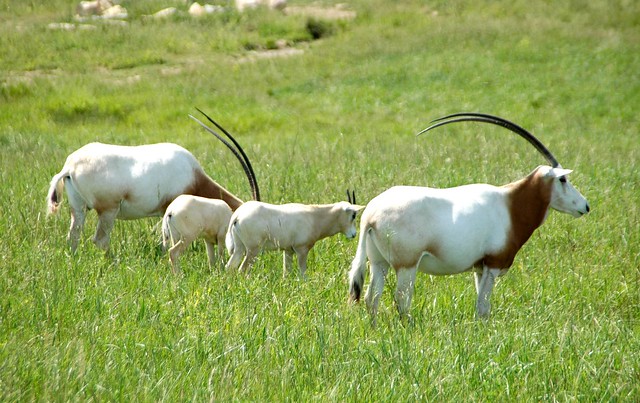 |
| This is the Scimitar-Horned Oryx, now extinct in the wild due (in part) to trophy hunting. |
 |
| African lions are powerful predators, but no match for human weapons, and they could be lost forever. |
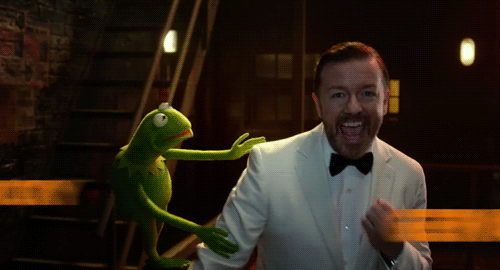 |
| How could I not put this GIF here? |
Tuesday, March 17, 2015
Creature Feature: Saint Patrick's Snakes
Top of the mornin' to you all! Er, afternoon. I know I haven't posted much lately- my life has been a bit hectic- but I plan on writing much more in the next coming weeks! Today I'd like to focus a bit on a myth surrounding Saint Patrick's Day, and, no, it doesn't involve alcohol (sorry to disappoint!).
I'll start by quoting National Geographic:
"The St. Patrick mythology includes the claim that he banished snakes from Ireland.
It's true no snakes exist on the island today, Freeman said. But they never did.
Ireland, after all, is surrounded by icy ocean waters—much too cold to allow snakes to migrate from Britain or anywhere else.
But since snakes often represent evil in literature, "when Patrick drives the snakes out of Ireland, it is symbolically saying he drove the old, evil, pagan ways out of Ireland [and] brought in a new age," Freeman said.
The snakes myth and others—such as Patrick using three-leafed shamrocks to explain the Holy Trinity (Father, Son, and Holy Ghost)—were likely spread by well-meaning monks centuries after St. Patrick's death, Freeman said."
Snakes have been used as a symbol of evil in a variety of contexts. For example, in the Bible, a serpent lures Eve to eat the forbidden fruit in the Garden of Eden. And they were used to represent Jews in antisemetic propaganda (like the children's story The Poisonous Serpent). In Norse mythology, the god Jormungandr, who looks like a snake, is the arch enemy of Thor.
But it's not all bad. The staff of Hermes with two entwined snakes, known as the "caduceus", is commonly used for North American medical organizations. And many groups throughout history saw snakes as representations of love, power, and other positive qualities so much so that they incorporated serpent images in their jewelry.
 |
| How can you not love a face like that? |
I know there are a lot of people out there who are afraid of snakes, and many who may even want them eradicated. But let me point out that snakes, like all animals (except mosquitoes) have a very important role in the ecosystem. Although they can be deadly, most want nothing to do with humans and are quite afraid of us. So don't get your facts from that Anaconda movie. If you see a snake, just don't touch it. And if anyone needs help remembering that, you have my permission to tie them to a chair and make them listen to this Steve Irwin-inspired song.
Sunday, January 18, 2015
News Review: Coral, Chytrid, and Discovery Channel Changes?
| We aren't doomed! Yay! I mean, uh, "ribbit". |
Remember in my last blog I talked about being an activist? Well, here's your chance! The Mid-Atlantic Fishery Management Council’s Deep Sea Corals Amendment 16 to the Mackerel, Squid, and Butterfish Fishery Management Plan (great Odin's raven, what a mouthful!) is a law that will help protect corals on the East Coast of the US from trawling, a destructive type of commercial fishing. On Earthjustice, you can send a quick message supporting this amendment! I'm not going to explain right now how important corals are to the ocean, or how important the ocean's health is to us, but to put it simply, IT'S IMPORTANT! So please just take a minute and support the protection of our ocean.
 |
| The existence of aliens is more logical.... |
As always folks, thanks for reading! I have some more posts in the works so keep checking back!
Careers in Wildlife Conservation
Howdy folks! I wanted to write a quick post about careers in conservation, and what you can do to help outside of a formal career.
Careers
Wildlife conservation is a very rewarding career field because these professionals really make a difference in the world! There are many areas you can explore:
Wildlife Management: invasive species control, habitat restoration- check out US Fish and Wildlife and the US National Park Service
Research: population biology, ecology, resource management, habitat preservation- try the EPA, and a great place to look for jobs is the Texas A&M Job Board, they have internships and volunteer opportunities too!
Education: nature centers, zoos, aquariums- take a look at the Association of Zoos and Aquariums
Keep in mind, I'm just brainstorming here, trying to give you a few suggestions, and there are a whole lot of jobs that I'm sure I haven't even thought of! But if you are interested in any of these topics, the links I included are great places to start. My best advice is don't be afraid to reach out! For example, I went on the Texas A&M Job Board and found an internship in Colorado. Even though I couldn't commit to it, I sent an e-mail to the listed contact, and, thanks to a wonderful park ranger, ended up volunteering for two weeks at Rocky Mountain National Park!
Education
If you're really interested in a career in wildlife conservation, take a look at educational institutions that will prepare you for one. If anyone reading this is around college age, these school programs are definitely worth your consideration (there are plenty more around the country, go ahead and Google it!)
Conservation and Wildlife Management at Delaware Valley College (my favorite!)
Ecology and Evolutionary Science at Rutgers University
Fish and Wildlife Biology and Management at SUNY
Natural Science at Colorado State University
Volunteering
Don't want a career in this field? No problem! Many organizations use the help of volunteers to help promote conservation! Check with your local zoo or aquarium for volunteer opportunities, the National Park Service again, or even your local town may have something! The Texas A&M site I linked before is helpful too. If you want a real adventure, go on an Earthwatch expedition- you can participate in hands-on research in some of the most exotic and beautiful locations around the world (and if anyone wants to take me on one, I can be packed in about twenty minutes!). You could always just play with sea turtles, too.
Being an Activist
While not a true career for many people, one of the easiest and best ways to help out wildlife conservation is by being an activist. What do I mean by that? I mean showing your support for causes such as recycling, habitat preservation, and endangered species protection. You don't have to go start a rally, helping can be as easy as clicking a button. Here are some websites where you can sign petitions to help conservation:
Earthjustice
Change.org (includes petitions of all kinds)
You can also support organizations like United for Wildlife and World Wildlife Fund through monetary donations.
Another easy way to help is just by spreading the word! Post a link to a conservation article on your Facebook page, or tweet something to raise awareness (United for Wildlife uses #WhoseSideAreYouOn), and of course, you can always tell your friends to read my blog! =P
Thanks for reading everyone!
 |
| Picture credit: reserveamerica.com |
Wildlife conservation is a very rewarding career field because these professionals really make a difference in the world! There are many areas you can explore:
Wildlife Management: invasive species control, habitat restoration- check out US Fish and Wildlife and the US National Park Service
Research: population biology, ecology, resource management, habitat preservation- try the EPA, and a great place to look for jobs is the Texas A&M Job Board, they have internships and volunteer opportunities too!
Education: nature centers, zoos, aquariums- take a look at the Association of Zoos and Aquariums
Keep in mind, I'm just brainstorming here, trying to give you a few suggestions, and there are a whole lot of jobs that I'm sure I haven't even thought of! But if you are interested in any of these topics, the links I included are great places to start. My best advice is don't be afraid to reach out! For example, I went on the Texas A&M Job Board and found an internship in Colorado. Even though I couldn't commit to it, I sent an e-mail to the listed contact, and, thanks to a wonderful park ranger, ended up volunteering for two weeks at Rocky Mountain National Park!
 |
| I'm very proud of this picture I took in Colorado! |
If you're really interested in a career in wildlife conservation, take a look at educational institutions that will prepare you for one. If anyone reading this is around college age, these school programs are definitely worth your consideration (there are plenty more around the country, go ahead and Google it!)
Conservation and Wildlife Management at Delaware Valley College (my favorite!)
Ecology and Evolutionary Science at Rutgers University
Fish and Wildlife Biology and Management at SUNY
Natural Science at Colorado State University
 |
| I thought this was a cute picture :) |
Don't want a career in this field? No problem! Many organizations use the help of volunteers to help promote conservation! Check with your local zoo or aquarium for volunteer opportunities, the National Park Service again, or even your local town may have something! The Texas A&M site I linked before is helpful too. If you want a real adventure, go on an Earthwatch expedition- you can participate in hands-on research in some of the most exotic and beautiful locations around the world (and if anyone wants to take me on one, I can be packed in about twenty minutes!). You could always just play with sea turtles, too.
 |
| ...which is what I would be doing if I could afford it! |
While not a true career for many people, one of the easiest and best ways to help out wildlife conservation is by being an activist. What do I mean by that? I mean showing your support for causes such as recycling, habitat preservation, and endangered species protection. You don't have to go start a rally, helping can be as easy as clicking a button. Here are some websites where you can sign petitions to help conservation:
Earthjustice
Change.org (includes petitions of all kinds)
You can also support organizations like United for Wildlife and World Wildlife Fund through monetary donations.
Another easy way to help is just by spreading the word! Post a link to a conservation article on your Facebook page, or tweet something to raise awareness (United for Wildlife uses #WhoseSideAreYouOn), and of course, you can always tell your friends to read my blog! =P
Thanks for reading everyone!
Subscribe to:
Comments (Atom)


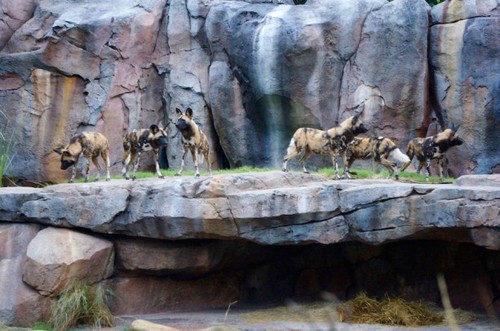
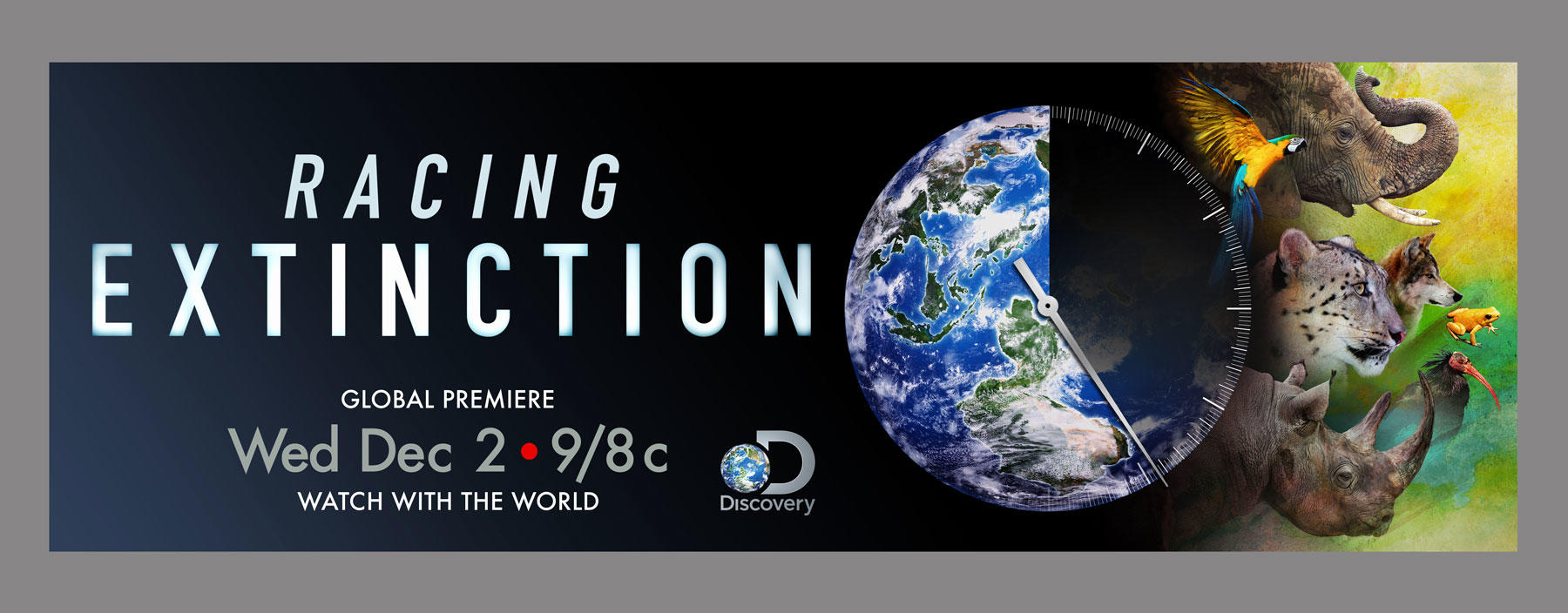

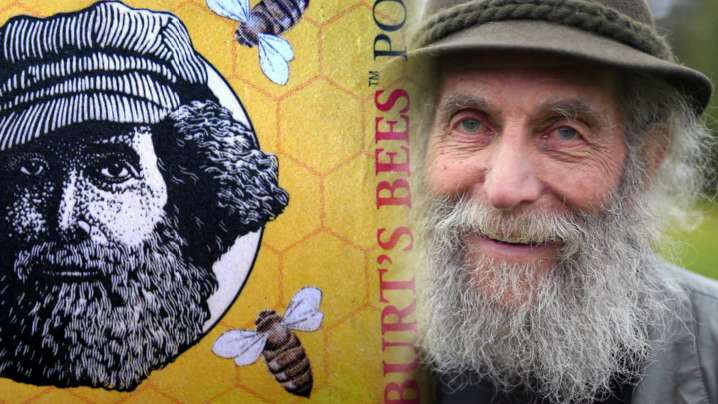

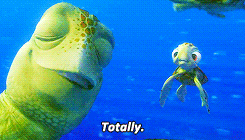

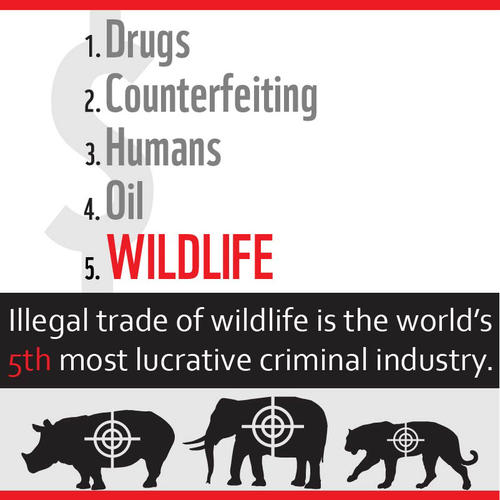
.JPG)
.JPG)
.JPG)
.JPG)
.JPG)


.JPG)

